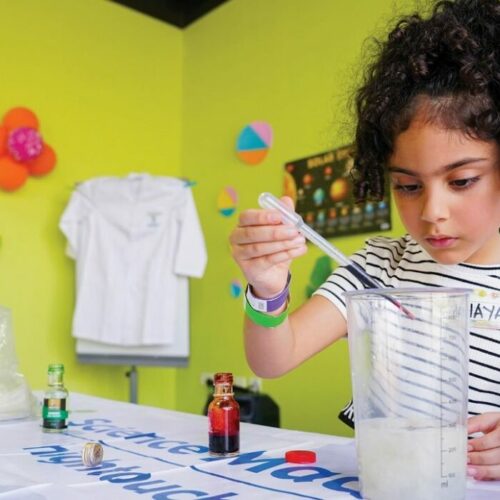The benefits of extracurricular activities for kids

Extracurricular activities are fantastic at aiding a child’s development in a range of different ways. Let’s take a closer look at what extracurriculars can do for your little one.
Getting involved in extracurricular activities generates a whole host of benefits for children. While school can be demanding and taking on anything extra may seem daunting, extracurriculars can keep your child active and learning, while taking their mind off their classes.
Develop social skills
Perhaps the main reason most parents sign their children up to a new extracurricular activity is for them to make new friends. At the very least, all of the children present will share a common interest in the chosen activity, and it’s likely that they’ll have more in common than this alone. Meeting other kids away from the pressures of the school environment is a great way for little ones to socialise.
Especially for those who may struggle socially in school, extracurricular activities offer the chance of a fresh start. It’s an opportunity for them to try to make some friends, all while working on a hobby.
Learn something new
Though obvious, the fact that extracurriculars present a way for your child to learn something new should not be underestimated. School can feel all-consuming for little ones, going from class to class and stressing about homework. Taking on something completely different in a non-school environment can reignite their true love for learning. While you may have certain sports or activities in mind that you would like your child to try, it’s important to get some input from them. They’re the ones that have to show up every week, after all!
Some parents find it difficult to get behind an extracurricular that they don’t see the benefit of. For example, sport-loving parents may struggle with the idea that their child has no interest in playing football, and instead wants to take an acting class. Of course, this can happen in reverse too. What matters most is that your child is interested in the chosen activity. Naturally, they may be hesitant at first. However, if they’re generally unhappy in their new extracurricular, it’s okay for them to switch to something they’d prefer.
Improve in school
Though the focus here is away from school, it should be noted that taking on extracurriculars can actually improve your child’s performance in school. Most extracurriculars will hone a variety of skills, including problem-solving, critical thinking, creativity and memory. Studies have shown that children who take part in extracurricular activities often perform better in reading and maths, while achieving better grades overall.
Leadership and teamwork
Out-of-school hobbies, whether sporting, artistic or otherwise, are a perfect place for children to develop leadership and teamwork skills. Working as part of a team is something that your child will need to become adept at as they move through school and beyond. Lots of children can find this hard at first, particularly those who don’t have any siblings. The mentors delivering the extracurriculars will have the ability to teach your child to understand the nature of teamwork and how to contribute to the common goal.
Teamwork is also a good way for children to gain an understanding of leadership. A team without an elected leader is less likely to reach the goal, and most instances of successful teamwork come from teams that are all pulling in the same direction. Here, your little one will gain invaluable experience of what it takes to lead a team, and these skills will stand to them for their whole life.
Mental health
Taking part in extracurricular activities can have a really positive impact on your child’s mental health. Regardless of how well they get on in school, this is a place where they can be themselves. They can express their feelings to like-minded kids, learn something that they’re genuinely interested in and blow off some steam after a challenging school day.
Many children can feel stuck in a rut in school and this can damage their confidence. Learning a new hobby and practising it regularly can boost your little one’s confidence and self-esteem, while alleviating any feelings of anxiety that they may be experiencing.
Diversity
Another lesser-mentioned benefit of taking on an extracurricular activity is that your child might be able to meet a much more diverse group of children than they’re used to at school. Whether it’s kids from different cultures or socio-economic backgrounds, or children with different passions, it’s a valuable opportunity for your child to broaden their horizons by engaging with a variety of people.
CV building
Last, but by no means least, extracurricular activities will look excellent on your child’s CV. It’s very common for universities and potential employers to take this into account when considering applicants. Experience outside of school can be very appealing as it shows a willingness and curiosity to go above and beyond when it comes to learning, as well as a variety of interests.
The bottom line is that extracurriculars provide kids with a safe space for them to be themselves, to explore new hobbies and to make new friends. So consider finding an option that your little one is interested in and cheer them on, all the way!
Image Credit: ShutterStock











Comments